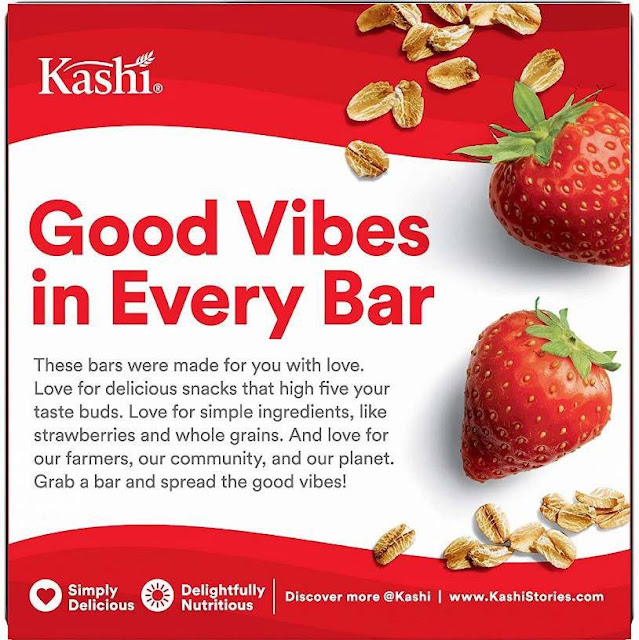Hoffmann v. Kashi Sales, L.L.C., No. 21 CV 9642 (VB), 2022 WL 17823171 (S.D.N.Y. Dec. 20, 2022)
Hoffman alleged violations of Sections 349 and 350 of New
York’s GBL; violations of the consumer fraud acts of Montana, Virginia,
Delaware, and Kansas; breach of express warranty; breach of the implied
warranty of merchantability; violation of the Magnuson Moss Warranty Act
(“MMWA”); fraud; and unjust enrichment, all based on the assertion that
defendant misrepresents the amount of strawberry and honey in its “Ripe
Strawberry Soft Baked Breakfast Bars.” Some of the claims survived a motion to
dismiss.
The front packaging allegedly prominently displays the words “Ripe Strawberry” and, in smaller letters, “Made with Wildflower Honey,” “3g Fiber,” “10g Whole Grains,” and “Non GMO Project Verified” and depicts an enlarged breakfast bar with red filling:
The back label depicts two large, “fresh, ripe” strawberries
and scattered oats, and reads, in relevant part, “These bars were made for you
with love.... Love for simple ingredients, like strawberries and whole grains.”
The back label also describes the Product as “Simply Delicious” and
“Delightfully Nutritious”:
This allegedly leads reasonable consumers to expect “more strawberry ingredients in the filling than non-strawberries, and more honey than non-honey sweetening ingredients.” But the filling actually contains more apples and pears than strawberries, and the Product as a whole contains more sugar and tapioca syrup than honey. Red elderberry juice concentrate allegedly is added to the filling to boost its red color. Kashi’s reputation as “a leading seller of organic and healthy snacks, known for being transparent with its ingredients and corporate identity” also allegedly encourages consumers to trust defendant’s labels.
Hoffman alleged that consumers prefer strawberries to apples
and pears, in part because strawberries confer health benefits that apples and
pears do not, and that consumers seek out products sweetened with honey instead
of sugar because honey occurs naturally and has a lower glycemic index.
Strawberry claims: Though a close call, plausible at this
stage. “[S]ome presence of strawberries combined with an accurate ingredients
list does not foreclose the possibility that the packaging is misleading.” The
court rejected Kashi’s argument that “ripe strawberry” was only presented as
the flavor, and not as an ingredient. The back packaging says defendant’s
snacks were made with “[l]ove for simple ingredients, like strawberries and
whole grains.” Using “Ripe” to modify “Strawberry” on the front packaging
bolstered the implication that real, ripe strawberries are present in the
Product. A reasonable consumer might believe that strawberries were the
predominant fruit ingredient in the filling. The large, bold font of “Ripe
Strawberry” with “Soft Baked Breakfast Bars” in significantly smaller, unbolded
font below suggested that “Ripe Strawberries” were a central component, and
combined with the back images/text to make the claim plausible.
The instant case was distinguishable from recent cases
holding the packaging of Strawberry Pop-Tarts could not plausibly mislead a
reasonable consumer into believing the Pop-Tart filling contained mostly
strawberries. The front packaging characterized those products as “pastries,”
and pictured a product with a bright red, unnaturally colored filling, unlike
the strawberry jam-like color pictured here. “Accordingly, the Pop-Tarts
packaging portrayed a processed breakfast treat more akin to the packaging of
sugary breakfast cereals, the latter of which courts routinely find could not
have reasonably portrayed a product with predominantly fruit ingredients.” But
the product here was presented as being made “with simple ingredients, like
strawberries and whole grains” such that it is “Delightfully Nutritious.” “It
is plausible these representations could reinforce a reasonable consumer’s
understanding, based on the front packaging, that the filling’s predominant
fruit ingredient is strawberries.”
Honey: Same result. “Made with Wildflower Honey” presented
honey as an ingredient, not a flavor. And the use of “Wildflower” to describe
the honey “bolsters the impression that actual honey is in the Product.” Hoffman
alleged that a survey highlighted in “Prepared Foods” magazine in 2018 noted
that “60% of consumers ... look for honey on the product label” and that “about
half of consumers would pay at least 5% more for food ... primarily sweetened
with honey.” Other cases favoring defendants were distinguishable because, in
those cases, honey was presented as a flavor instead of an ingredient.
Even though honey wasn’t presented as the primary ingredient,
that didn’t matter given the allegations that honey is a preferred
ingredient “specifically sought out by consumers.”
Breach of express warranty: dismissed for failure to allege sufficient
pre-suit notice. Breach of implied warranty claim failed for want of privity.
This also got rid of the federal Magnusson-Moss Warranty Act claims. Fraud
failed for want of sufficient allegations of fraudulent intent. Allegations of
a profit motive to deceive consumers by charging more were insufficient, as were
allegations that “the records [d]efendant is required to maintain, and/or the
information inconspicuously disclosed to consumers, provide it with actual
and/or constructive knowledge of the falsity of its misrepresentations.” Unjust
enrichment failed as duplicative.








No comments:
Post a Comment